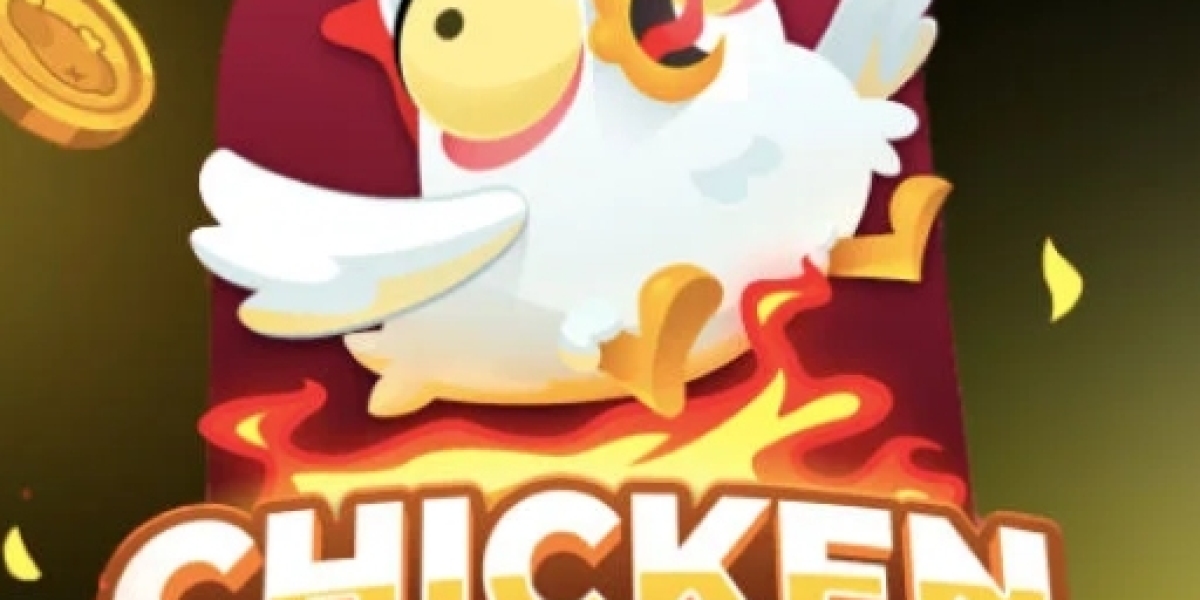Chicken: The High-Stakes Game of Nerves That Defined a Generation
Chicken. The word itself conjures images of reckless youth, roaring engines, and the adrenaline-pumping thrill of impending doom. It’s more than just a game; it's a metaphor for risk-taking, strategic thinking, and the ever-present tension between courage and cowardice. While variations exist, the core concept remains the same: two individuals, usually driving vehicles, head directly towards each other. The first to swerve – to "chicken out" – loses, branded with the shame of admitting fear. But in losing, they live to fight another day. In refusing to yield, they risk everything. This article delves deep into the history, psychology, variations, and enduring legacy of the chicken game, exploring its cultural impact and its surprisingly complex strategic implications.
A Brief History of Testing Limits
The origins of the chicken game are somewhat murky, shrouded in the mists of daredevil antics and youthful rebellion. While the exact moment of its inception is impossible to pinpoint, its emergence is often linked to the post-World War II era, a time of burgeoning car culture and a desire to push boundaries. The game’s popularity exploded in the 1950s, fueled by Hollywood portrayals that romanticized the inherent danger and rebellious spirit. Films like "Rebel Without a Cause" (1955), starring James Dean, cemented the chicken game in popular culture, transforming it from a local pastime into a nationally recognized symbol of defiance and the quest for validation.
Before cars, similar tests of courage existed. Imagine two people walking towards each other on a narrow ledge. The principle is the same: who will yield first? Who will risk falling to maintain their pride? This fundamental human desire to test limits, to confront fear, and to prove oneself is at the heart of the chicken game’s enduring appeal. It's a raw, visceral expression of dominance and a stark reminder of our own mortality.
The Psychology of Chicken: Fear, Pride, and Rationality
The chicken game is a fascinating study in human psychology, revealing the complex interplay between fear, pride, and rationality. At its core, it's a battle of wills, a high-stakes negotiation where the primary currency is courage. Understanding the psychological forces at play is crucial to understanding the game itself.
The Role of Fear
Fear is the most obvious element. The primal instinct for self-preservation screams at you to avoid a head-on collision. Overcoming this fear requires a significant degree of self-control and a willingness to gamble with your own safety. The closer you get to the point of no return, the more intense the fear becomes, making it increasingly difficult to maintain your nerve.
The Power of Pride
Pride is the driving force that often overrides fear. The desire to avoid being labeled a "chicken" can be incredibly powerful, especially in the presence of an audience. This fear of social humiliation can push individuals to take risks they would otherwise avoid. The perceived shame of yielding can be more terrifying than the prospect of physical harm.
Rationality vs. Irrationality
Ideally, decisions should be based on a rational assessment of risk and reward. However, the chicken game is rarely a rational exercise. The heat of the moment, the pressure of competition, and the influence of emotions can all cloud judgment and lead to irrational behavior. In many cases, the desire to "win" – to avoid being the chicken – outweighs the rational consideration of the potential consequences.
Variations of the Game: Beyond the Automobile
While the most famous iteration of the chicken game involves cars, the underlying principle can be applied to a wide range of scenarios. Any situation that involves two individuals or groups heading towards a collision – literal or figurative – can be considered a variation of the game.
The Prisoner's Dilemma: A Theoretical Framework
The chicken game shares similarities with the prisoner's dilemma, a classic example in game theory. In both scenarios, the optimal strategy depends on the actions of the other player. If one player is certain that the other will swerve, they can maximize their own payoff by continuing straight. However, if both players adopt this strategy, the result is disastrous. This highlights the importance of communication and strategic thinking in the chicken game.
Examples in Real Life
The chicken game isn't confined to reckless youth on deserted roads. It manifests itself in numerous real-world situations:
- Economic Competition: Companies engaged in price wars are essentially playing a game of chicken. Each company wants to maintain its market share, but if both companies continue to lower prices, they risk destroying their profit margins.
- Political Stand-offs: International relations often involve brinkmanship, where countries push each other to the brink of war to achieve their objectives. This is a high-stakes game of chicken with potentially catastrophic consequences.
- Negotiations: Labor negotiations, business deals, and even personal relationships can involve elements of the chicken game. Each party wants to get the best possible outcome, but if neither party is willing to compromise, the negotiations can break down.
Strategic Considerations: How to "Win" (or at Least Survive)
Winning the chicken game is not about brute force or blind courage; it’s about strategic thinking and manipulating your opponent's perception. While the game appears simple on the surface, a deeper understanding reveals a complex interplay of psychological tactics and calculated risk assessment.
Establishing Credibility
One of the most effective strategies is to establish a reputation for being reckless or unpredictable. If your opponent believes that you are willing to go all the way, they are more likely to swerve. This can be achieved through a variety of tactics, such as making bold statements, taking unnecessary risks in other situations, or even spreading rumors about your past exploits.
Communicating Commitment
Another key strategy is to communicate your commitment to not swerving. This can be done through verbal declarations, body language, or even pre-emptive actions that make it clear that you are not going to back down. For example, in the car version of the game, some players have been known to remove their steering wheel and throw it out the window, signaling their unwavering commitment to the course.
Reading Your Opponent
Successful players of the chicken game are adept at reading their opponents. They pay close attention to body language, facial expressions, and any other cues that might indicate their opponent's level of fear or resolve. This information can be used to make informed decisions about whether to continue straight or swerve.
The Importance of Deception
Deception is a crucial element of the chicken game. You want your opponent to believe that you are more reckless and determined than you actually are. This can involve feigning confidence, exaggerating your commitment, or even employing outright lies to mislead your opponent.
The Paradox of the Chicken Game
The chicken game presents a paradox. To "win," you must convince your opponent that you are irrational and willing to risk everything. However, actually being irrational is likely to lead to disaster. The ideal strategy, therefore, is to appear irrational while remaining in control and making calculated decisions.
Ethical Considerations: When Does the Game Go Too Far?
The chicken game raises serious ethical concerns, particularly when it involves physical risk. While the game may be seen as a harmless form of entertainment by some, it can have devastating consequences.
The Dangers of Physical Harm
The most obvious ethical concern is the risk of physical harm. In the car version of the game, a collision can result in serious injuries or even death. Even in less physically dangerous variations, the game can lead to emotional distress and psychological trauma.
The Issue of Consent
Another ethical consideration is the issue of consent. Are all participants fully aware of the risks involved, and are they genuinely willing to participate? In some cases, individuals may feel pressured to participate against their will, especially in social situations where there is a strong emphasis on conformity.
The Social Impact
The chicken game can also have a negative social impact. It can promote a culture of recklessness and aggression, and it can normalize risky behavior. In extreme cases, it can even lead to criminal activity.
The Importance of Responsibility
Ultimately, the ethical implications of the chicken game depend on the specific context and the individuals involved. It is crucial to approach the game with a sense of responsibility and to be mindful of the potential consequences. If the risks are too high, or if there is any doubt about the consent of all participants, it is best to avoid the game altogether.
The Enduring Legacy of Chicken: A Cultural Touchstone
Despite its inherent dangers and ethical complexities, the chicken game has left an indelible mark on popular culture. It has been featured in countless films, books, and television shows, and it continues to resonate with audiences today.
The Chicken Game as a Metaphor
The chicken game serves as a powerful metaphor for a wide range of human experiences. It represents the tension between risk and reward, the struggle between courage and cowardice, and the ever-present temptation to push boundaries. It's a microcosm of the larger challenges we face in life, where we are constantly forced to make difficult decisions under pressure.
Examples in Film and Literature
The chicken game has been a recurring theme in film and literature for decades. "Rebel Without a Cause" remains one of the most iconic examples, but the game has also been featured in films like "Footloose," "American Graffiti," and "Mad Max: Fury Road." In literature, the chicken road betting game game has been used to explore themes of masculinity, identity, and the search for meaning.
The Chicken Game in Modern Society
Even in today's society, the chicken game continues to exert its influence. While the literal act of driving cars towards each other may be less common, the underlying principles of the game are still relevant. We see it in political standoffs, business negotiations, and even personal relationships. The desire to "win" – to avoid being the chicken – remains a powerful motivator.

The Importance of Learning from the Game
While the chicken game can be dangerous and ethically questionable, it also offers valuable lessons about human behavior. By understanding the psychological forces at play, we can learn to make better decisions in high-pressure situations, to resist the temptation to take unnecessary risks, and to appreciate the importance of rational thinking.
Conclusion: More Than Just a Game
The chicken game is far more than just a reckless pastime. It's a complex social phenomenon that reflects our deepest fears, our strongest desires, and our inherent drive to test limits. While the game itself may be dangerous and ethically problematic, it provides a valuable lens through which to examine human behavior and the ever-present tension between courage and cowardice. Understanding the psychology, strategy, and ethical considerations of the chicken game can help us to make better decisions in all aspects of our lives, to avoid unnecessary risks, and to appreciate the importance of rational thinking. So, the next time you hear the word "chicken," remember that it's not just about fear; it's about the complex and often irrational forces that drive human behavior. It's a reminder that sometimes, the bravest thing you can do is to swerve.









